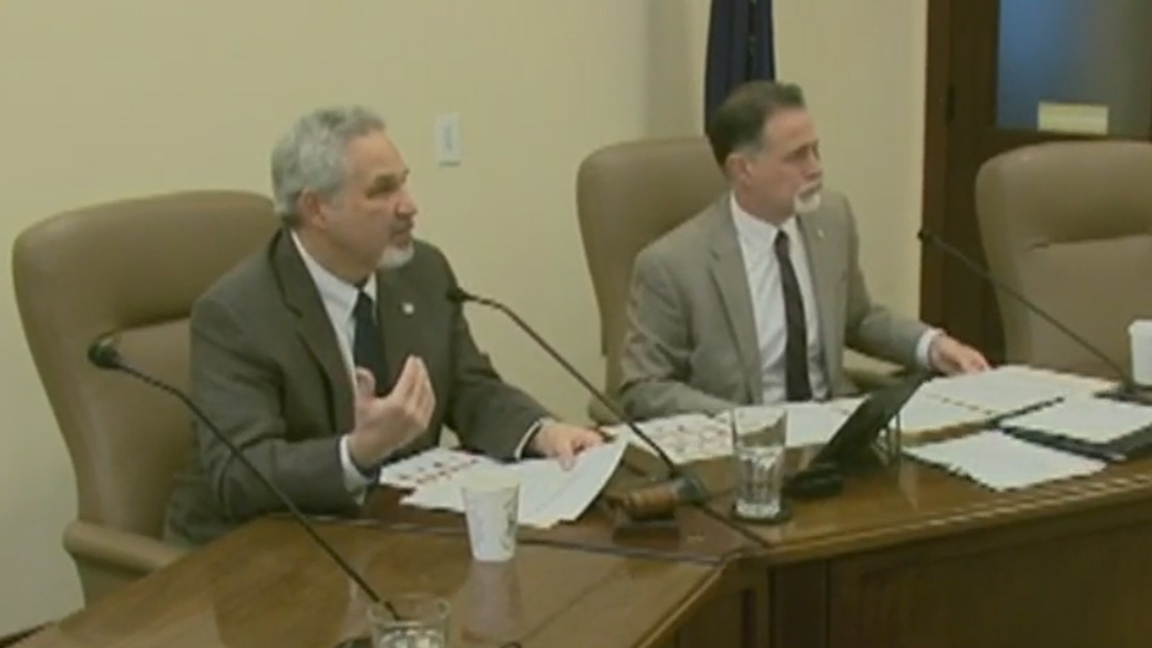Expect the first cruise ship of the year to arrive in Juneau before the Alaska Legislature finishes its work.
While most legislators are reluctant to say it outright, all signs indicate the first session of the 30th Alaska Legislature will continue to its 121-day constitutional limit, not the 90-day limit approved by Alaska voters in 2006.
“We’re not here to be in a 90-day session, we’re here to fix some of the problems,” said Senate President Pete Kelly, R-Fairbanks, in a press conference on Monday.
Ninety-day sessions started with the 2008 Alaska Legislature, and this is the 10th. Only two have finished before midnight on the morning of Day 91 without being followed immediately by a special session: 2009 and 2013. The 2010 session ended close to the deadline: It finished just after midnight.
Last year, the Legislature spent 121 days in regular session, a full four-week special session, then another eight-day special session.
“I’d like to think collectively that we learned in May, June and July last year, some lessons,” said Speaker of the House Bryce Edgmon, D-Dillingham, in a conversation with reporters on Friday.
“None of us want to have a repeat of that, but then again, the forces that’s necessary to come to agreement, it’s very difficult to do,” Edgmon said.
Monday was the 21st day of the Legislative session, and if lawmakers were to stick to a 90-day session, they would leave Juneau on April 17. A 121-day session would send them home May 18. The season’s first cruise ship arrives May 1.
The reason for the extended stay isn’t the state’s budget deficit ─ lawmakers all agree that something needs to be done to address that. The issue is what should be done to address it.
The Republican-led majority in the Senate favors a three-part plan that includes government cuts, a cap on future spending, and the diversion of some Permanent Fund earnings to pay for government.
Speaking Monday, Kelly said the Senate’s solution would not entirely solve the state’s deficit; it instead would reduce the deficit to the point that the state’s savings accounts could last for more than a decade, instead of just one year.
“There will be a sizable draw (on savings). There’s almost no way around it in this particular session,” Kelly said.
The House coalition majority, meanwhile, favors a four-part plan that includes Permanent Fund earnings, a sales tax or income tax, budget cuts, and reforms to the state’s subsidy of the oil and gas industry.
Edgmon likewise believes some sort of draw from savings will be required to balance the state budget. If the Legislature turns to its Constitutional Budget Reserve, that would require a three-quarters vote of the House and a three-quarters vote of the Senate.
“That could easily carry us beyond 90 days,” Edgmon said of the need to convince three-quarters of the Legislature.
With the majorities of both bodies favoring different strategies, lawmakers will need extensive time to negotiate a compromise ─ if one comes about at all. Furthermore, the legislative pieces of each plan have not yet been vetted or discussed. Some have not even been formally introduced, though those introductions are expected this week and next.
Contact reporter James Brooks at james.k.brooks@juneauempire.com or 419-7732.

